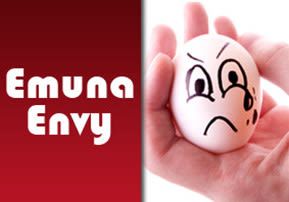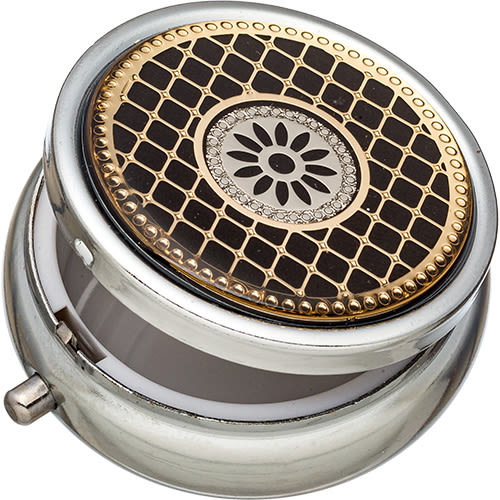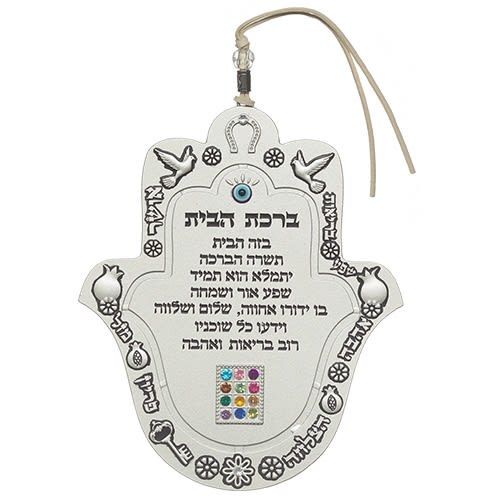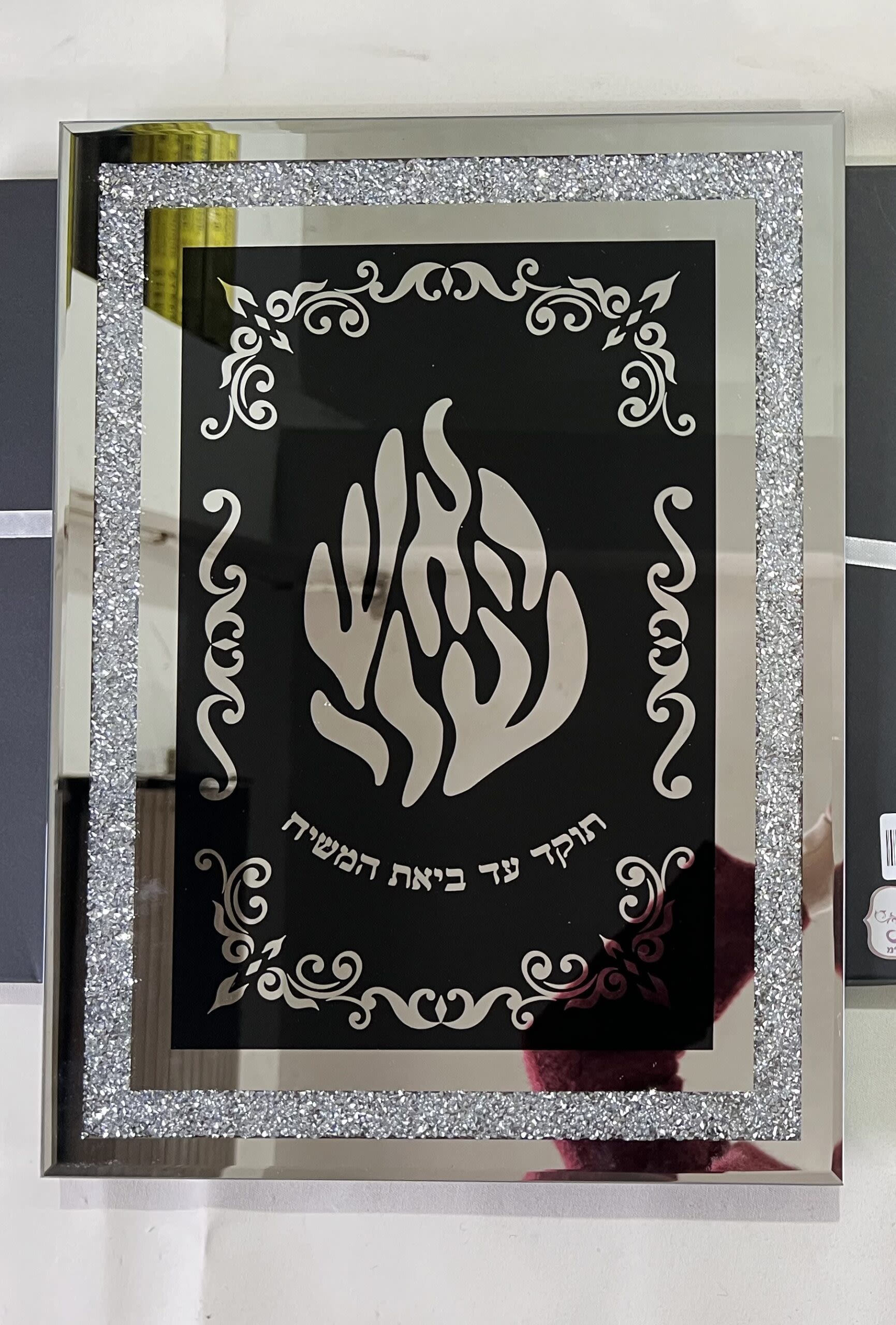
Emuna Envy
The Arizal teaches that each and every one of us has a special light that only we can bring into this world; there is no one who ever was, is, or will be YOU…

I’ve never really been the type to envy someone over their clothes, jewelry, car, or IQ score. Yet as I’m human, I’ve certainly experienced those insidious twinges of envy; most notably in recent years there’s been central air conditioning envy, sofa envy, time management envy, and elaborate Shabbat dessert envy.
But what’s tripped me up the most since becoming religious has been emuna envy.
According to one definition I came upon online, envy is the wish to get what one does not have. According to Torah, this can be either destructive or constructive.
The Ramban teaches that the kind of envy considered destructive (or prohibited by Torah) involves a person’s desire to have that which another has, while at the same time feeling that the other shouldn’t have what they do have – or that the envious person should have more than the other. This is a clear violation of V’ahavta l’rayecha k’mocha – loving your fellow as yourself.
Constructive envy (permissible by Torah) is when a person wants what another has, without any negative feelings toward the other.
In my case, I haven’t wished anything negative upon those whom I’ve envied, so I think I’m safe as far as not violating Torah goes. But my envy has detracted from my divinely-determined mission in this world.
I first got a taste of emuna envy upon reading the book Holy Woman by Sara Yocheved Rigler. I had a rush of envy for Mrs. Rigler’s zechut (merit) to spend so much time with a tzaddekes (righteous woman) – and her gift for the written word. I had emuna envy of the tzaddekes, for living an extremely trying life yet always managing to smile and never, ever complain. Not even once. I felt inadequate in comparison, thinking that I was so in the wrong for looking forward to the kids leaving the house in the morning when the tzaddekes would care for severely handicapped youth 24/7…by choice.
Chazal tell us (Bava Basra 22a) “kinat sof’rim tarbeh chachma” – the envy of Torah scholars increases wisdom. The problem is I didn’t become wiser, I became harder on myself.
I’ve envied a Kollel rebbetzin friend who hosts delicious sheva brachot meals, teaches kallahs, gives shiurim, and raises a gaggle of mentsches, while doing all the laundry without help. I’ve envied the emuna of a friend that lives in a tiny, decrepit government-issued apartment, but who gives generously to those collecting charity and wholeheartedly thanks Hashem for the roof over her head. And I’ve envied the emuna of a friend that traded in a spacious apartment for a much smaller one so she could raise her family in a more kedusha-dik (holy) environment.
This envy had not so much motivated me to be my best, but to wish I was more like them at their best.
Rebbe Nachman, doctor of the soul, offers a remedy for emuna envy. In Stories of Tzaddikim, a true tale is recounted about a man envious of Rebbe Nachman’s lofty spiritual level. The man would nag at the Rebbe to perform a miracle so he could attain greater yirat shamayim (fear of heaven), but the Rebbe would always decline. The man was relentless, so one day Rebbe Nachman agreed and he waved his hand over the man’s head, blessing him that he should have a high level of yirat shamayim.
After a day of living in such fear of Hashem that he became paralyzed with trepidation, the man begged Rebbe Nachman to rescind his blessing. After the Rebbe waved his hand again over the man’s head and the fear left him, he explained how crucial it is for each person to serve Hashem within their own ability and at their own level. Hashem doesn’t want us to seek quick-fix emuna – He wants us to earn closeness to Him at our own pace.
The Arizal teaches that each and every one of us has a special light that only we can bring into this world, and that there is no one who ever was, is, or will be YOU. I’m trying to internalize this beautiful and important teaching. Hitbodedut helps me work through emuna envy – just saying out loud that I wish I was like so-and-so allows me to realize how the yetzer hara misdirects me.
And I’m learning to not dismiss the growth I am doing, at my own pace. That’s what Hashem wants from us – to be ourselves, not anyone else – and to serve Him in our own way, where we’re at now.
Even if the cake we make for Shabbat wouldn’t cut being the cover model for Martha Stewart’s magazine.











5/29/2012
index of jealousy In the Artist's Way the author talks about the index of jealousy, to use your jealousy to see the way you truly wish to go in. So the fact that you are not envious of someone with a huge house and a size 0 figure, but rather of people with elevated midot living a life of kedusha is already a great thing. The accomplishments you are jealous of are really a beacon calling to you to become the best you. Also be aware that others are probably jealous your accomplishments, i.e. you are a beacon too.
5/29/2012
In the Artist's Way the author talks about the index of jealousy, to use your jealousy to see the way you truly wish to go in. So the fact that you are not envious of someone with a huge house and a size 0 figure, but rather of people with elevated midot living a life of kedusha is already a great thing. The accomplishments you are jealous of are really a beacon calling to you to become the best you. Also be aware that others are probably jealous your accomplishments, i.e. you are a beacon too.
12/25/2011
well said! This article gave me real chizuk, knowing that I am exactly where Hashem wants ME to be…keeping my eyes in my own dalet amos helps reduce emuna envy, as well!!…great article!!!!